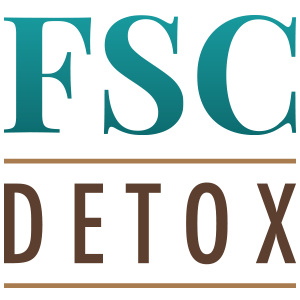The Link Between PTSD and Drug Use
What is PTSD?
PTSD is Post-Traumatic Stress Disorder, a mental health disorder caused by a traumatic experience in a person’s life. Experiences that can cause PTSD include childhood abuse, sexual abuse, car accidents, military combat, violent assault, natural disasters, or acts of terrorism. Signs and symptoms of PTSD may be one or more of the following:
- Nightmares and trouble sleeping
- Flashbacks (physical and mental) or intense memories
- Reliving the trauma
- Behavioral changes, easily irritated, angered or triggered into a violent reaction
- Distancing from friends and family, avoidance of social interaction
- Social anxiety or avoidance of going out in public
Post-Traumatic Stress Disorder is often diagnosed with co-occurring disorders or mental health issues including depression, anxiety, and substance abuse. It is important to understand the cause of these disorders to treat them effectively. At Fresh Start of California, we treat our patients on a case-by-case basis, and we understand that we must not only treat for the substance abuse but also the cause of the abuse.
Contact the team of Orange County detox and rehab professionals at Fresh Start of California if you are struggling with drug or alcohol use. Call us today!
Co-Occurring Disorders: PTSD and Substance Abuse
Many believe that PTSD sufferers use drugs or alcohol to self-medicate, in hopes of numbing the pain and stress involved with PTSD. Military veterans and women who suffered sexual abuse or rape are at high risk for this type of self-medicating. With this in mind, it is no surprise that drug or alcohol use and abuse are considered avoidance symptoms of PTSD.
This symptom may be linked to endorphin withdrawal after a traumatic event. The body reacts to an experience of trauma with a release of endorphins to endure the event itself. Unfortunately, after the event(s) our body often produces fewer “feel-good” chemicals, thus making it harder to feel normal as well as harder to numb the pain of the experience. Drug and alcohol come into play when a person desires to escape the pain and stress, or the behavioral changes, using drugs and/or alcohol as their numbing mechanism. The repeated attempt to numb the pain results in the development of dependence builds a tolerance to the substance and creates abuse.
Addiction and PTSD
An addict’s brain becomes dependent on the substance of their choice to feel “normal” and avoid the sickness that comes with withdrawals. The symptoms of addiction, withdrawal, and PTSD tend to overlap, making it hard for sufferers to understand their symptoms and combat them effectively alone. Professional treatment involves finding the root of the addiction, understanding the symptoms of PTSD, and incorporating treatment for all mental health issues while rewiring the brain to rely on itself rather than drug or alcohol.
Inpatient and outpatient facilities like Fresh Start of California can work with you to treat both addiction and PTSD at the same time so that every patient has a chance at returning to a life they want to live. We want you to feel confident in your care plan. Our Orange County doctor, nurses, rehabilitation experts, and onsite teams create individual treatment plans for each patient’s needs. It is our goal to work together with our patients to build the solid foundation of a new life after addiction, one that includes symptom management of PTSD or other mental health disorders.
Trust Fresh Start of California with your detox and rehabilitation needs in Orange County. Our team is here for you. Contact us to start your treatment today.


